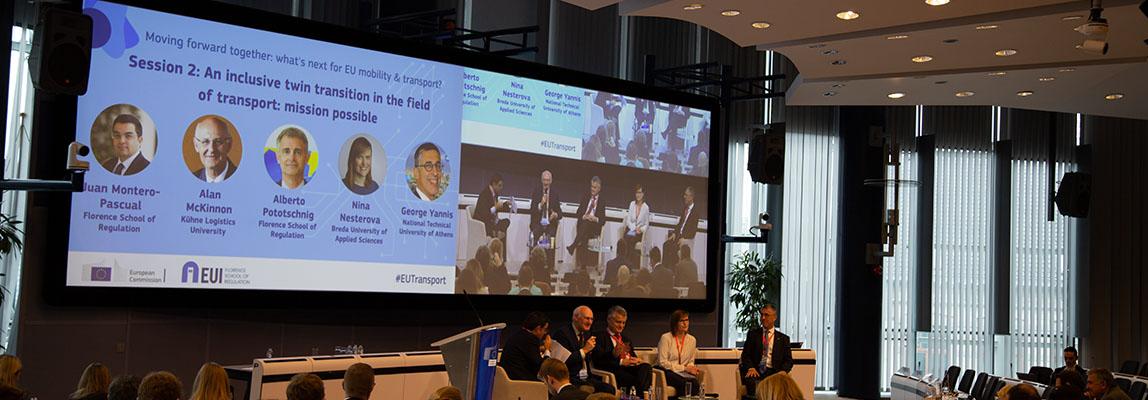
What's next in EU Mobility & Transport?
03/20/2024 - 07:26
- Kennis
- Onderzoek
On 21 February our Professor in Sustainable Tourism and Transport, Nina Nesterova, was one of the selected conference speakers in Brussels on challenges and future priorities in the EU transport and mobility field. In her work for Breda University of Applied Sciences (BUas) Nina applies the knowledge on sustainable transport developments to the tourism sector, contributing to emission reductions in Europe’s tourism and transport industry.
One of the most fascinating users of the European transport system
Nina guided her audience through the story of one of the most fascinating users of the European transport system: the tourism industry. ‘Europe is one of the most visited destinations in the world.’ Nina says. ‘Economically, this may be good news, but there is also a downside, being dependent on some of the most polluting modes of transport, private cars and aircraft.’
To give an example, the Dutch tourism and travel sector generated a total of about 30 Mton of CO2 emissions in 2019, which accounts for 20% of all Dutch CO2 emissions. Most of these emissions are caused by transport outside the Dutch borders, by Dutch travelling from the Netherlands and tourists coming to the country. Nina also showed her audience the worldwide scenario for tourism emission pathways and made clear that if no real action is taken, emissions growth from tourism will be incompatible with reaching the 50% emission reductions in 2030 and net zero in 2050.
‘That means that sustainable transport is essential to achieve sustainable tourism,’ Nina explains, ‘and in this transition we cannot only rely on aviation and motor vehicle advancement technologies, as they may arrive too late. Sustainable aviation fuels currently have resource and renewable constraints, and full vehicle electrification is connected to energy transition challenges. To allow time for all these processes to happen we also need a set of transport policies, right now, that can directly contribute to sustainable tourism travel.’
Tourism is often overlooked in transport policy
‘The most important message I tried to convey is that we must fully integrate tourism transport into transport policy if we really want to meet the CO2emission targets,’ Nina says. ‘Current transport policy is heavily focused on commuting and freight transport. Tourism is definitely an end user sector often overlooked in transport policy’.
To speed up sustainable transition in tourism we need the following transport policies:
- Policies that will bring air travel emissions (currently excluded from national carbon budgets) under decarbonisation legislation.
- Policies reducing the reliance on long-haul and on frequent flying.
- Policies supporting and speeding up developments of the single European railway system, focusing on the electrification of coach transport, and those facilitating cycling and active mobility.
- Policies facilitating electric car and camper use.
- Policies encouraging sustainable peri-urban and rural mobility, as tourism accommodation and attractions are often located in those areas.
‘Doing this will allow us to move forward together, and moving together will make sure that two sectors reinforce each other in their green transition,’ Nina states.
BUas is making concrete contributions to EU policy
Participation in this conference is a good example of how BUas, through its applied research, makes concrete contributions to EU policy. The event, which was initiated by the European Commission, was designed to identify blind spots in transport policy. It was organised by DG MOVE and it was the first event of this kind. The input will be used in new transport policy, as advice for the new commission that will be set up soon.
If you would like to know more about it, please feel free to contact Nina at [email protected].
You can also check:
Moving forward together: what's next for EU mobility & transport? - European Commission (europa.eu)